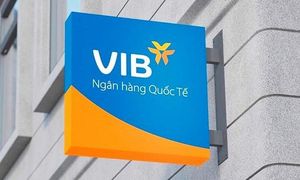Apple Inc. has revealed its earnings for the first quarter of fiscal year 2025, showcasing both impressive growth and notable challenges. Despite some disappointments, especially related to iPhone sales, the tech giant reported revenue of $124.3 billion, representing a modest 4% year-over-year increase. This outcome slightly exceeded analysts’ projections of $124.12 billion.
For the quarter ending December 28, 2024, Apple reported earnings per share of $2.40, surpassing the anticipated $2.35. Apple’s Services business emerged as a significant contributor to this growth, with impressive revenue reaching $26.34 billion, marking a 14% increase year-over-year. Analysts from Morgan Stanley pointed out their positive sentiment toward Apple’s long-term strategy, significantly due to the resilience of its Services division.
Despite the overall positive figures, iPhone sales fell below expectations, totaling $69.14 billion against forecasts of $71.03 billion. This decline signals potential worries for investors, as iPhone sales have long been the cornerstone of Apple's revenue. Notably, sales from the Greater China region plunged by 11.1%, highlighting increased competition from domestic brands like Huawei and Vivo. Apple’s CEO, Tim Cook, attributed this decline to several factors, including changes to channel inventory and the lack of availability of Apple Intelligence features in China.
“If you look at the negative 11, half of the decline is due to channel inventory changes, and so the operational performance is actually stronger,” Cook said, indicating his confidence in the company's broader strategy. With looming service expansions and the upcoming rollout of AI features, optimism looms for future growth, especially considering the anticipated support for the simplified Chinese language.
Analysts expect Apple’s Services revenue to continue its growth trend, with projections of low double-digit expansion. The installed base of active devices has risen to 2.35 billion, with boasting 1.42 billion iPhones, which provides opportunities for high-margin recurring revenue through subscriptions and services.
Investment firm Morgan Stanley responded positively to the earnings report, adjusting its price target for Apple stock up to $275 from $273, motivated by forecasts of slow but steady growth driven by Services. They indicated, "With Services now accounting for 21% of total revenue, it has become evident this is the path Apple is taking to stabilize its revenue streams."
Apart from the pressure on iPhone sales, Apple performed exceptionally well with its Mac and iPad product lines. Both saw substantial revenue increases, with Macs rising to $8.99 billion and iPads hitting $8.09 billion, each up 15% year-over-year. Following the launch of newer models, these segments showcase potential for continued growth, reinforcing Apple's diversified product strategy.
The company is also capitalizing on decreasing commodity prices, with lower NAND and DRAM costs anticipated to support future earnings. Morgan Stanley highlighted these factors, noting, "Apple is well-positioned to take advantage of favorable market conditions. The gross margin at 46.9% reflects operational efficiencies and product demand across multiple categories.”
Looking forward, Apple maintains its outlook for Q2 FY2025, projecting revenue growth of low to mid-single digits year-over-year. With gross margins expected to remain stable between 46.5% and 47.5%, analysts are cautiously optimistic about the company’s resilience. "Apple’s forecast indicates the company is gearing up for recovery after minor setbacks and we expect to see gains through its service offerings," commented Ed Egilinsky, managing director at Direxion.
Despite the historical challenges around iPhone demand, analysts suggest the combination of the iPhone replacement strategy and growing Services revenue could stabilize or even increase Apple's market value. The growing number of subscribers across its various services also signifies the potential for strong recurring revenue streams, which analysts see as central to Apple’s long-term growth.
Cook also voiced optimism over Apple Intelligence, stating, “The rollout of Apple Intelligence to additional markets will bolster our sales penetration. Our AI capabilities are enhancing experiences and transforming our product offerings—a shift we anticipate will accelerate consumer engagement.”
While the company faces significant hurdles, particularly within the Chinese market and the hyper-competitive smartphone arena, Apple's diversified strategy appears to yield rewarding results. The strong focus on Services positions Apple not only as a hardware titan but also as a growing player across software and digital services—an evolution welcomed by investors.
Overall, Apple's Q1 2025 earnings reflect both the potential and the challenges the company faces as it navigates the complex consumer tech ecosystem. The growth across Services and hardware hints at sustained success, but the pressure on iPhone sales remains palpable, highlighting the delicate balance Apple must strike to maintain its market position and inspire investor confidence moving forward. The stock's uptick during Friday trading, following the earnings report and forecasts of potential growth reflects this cautiously optimistic sentiment from market analysts and stakeholders alike.



